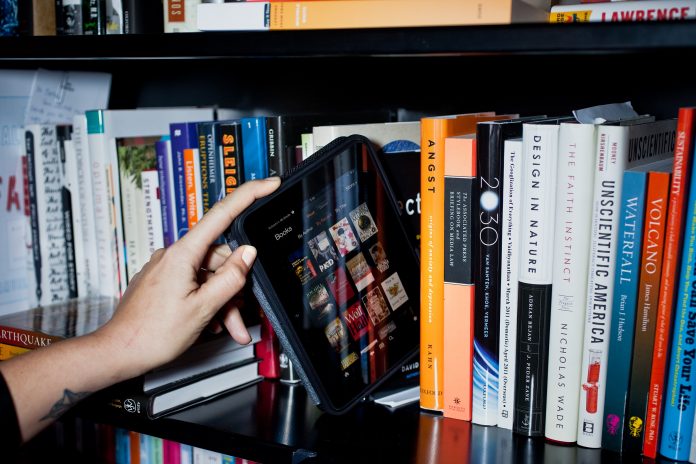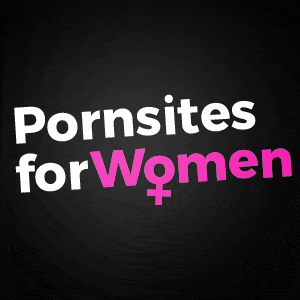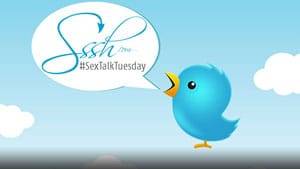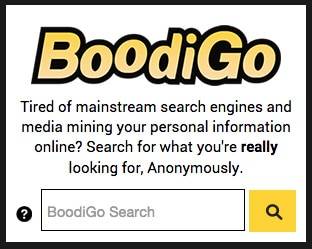Amazon’s Slippery Slope
Contributed by anonymous
Author’s note: I was asked by the folks at Erotic Scribes to put an article together about a major change which occurred at Amazon this last week, their new “Unlimited” program. I agreed, but have asked to remain anonymous. Why? Amazon has recently showed itself to be very capable of being the bully in the schoolyard during its ongoing conflict with the Hachette Publishing Group. There are literally hundreds of articles on the conflict available, but two of the best are here and here. And don’t miss Stephen Colbert’s take on the fight, here.
For the purposes of this article, suffice it to say that I am the CEO of a small independent publishing house, publishing around 25 romance, young adult, and erotic novels per month. What Amazon does is not of simply theoretical interest to me and my company, and while it may seem crazy that I want to stay anonymous, the risks of potential retribution are too great.
My success has been largely created (allowed if you wish) by Amazon’s favorable policies towards independent presses and self-published authors. Amazon has given us both a platform and a market. My husband and I draw our full-time income from the publishing business, my husband quitting a lucrative professional career to join me. We have three full-time employees and another six or eight people who work for the company as editors and artists part time. I have at least ten authors making a full-time living writing for my company and probably at least fifty more who make a part time income that they are proud of. Amazon is considering policies right now that I believe could potentially change all of that. Welcome to Kindle Unlimited.
Read on…
This week, with almost no warning, Amazon announced a new book-reading program: Kindle Unlimited. Called by some the “Netflix of Reading,” the program works like this: For $9.99 per month, subscribers can borrow as many eBooks as they want from the Unlimited program’s lists, which are touted as including 600,000 titles.
How does a title get into the Unlimited program? Most, thought not all (more on this later), appear to be titles published direct to Amazon through their KDP (Kindle Direct Publishing) system and then additionally included in the more restrictive “Select” program, books that are exclusive to Amazon. And exclusive means exactly that: Books enrolled in the Select program can be for sale no where else, including the publisher’s own website.
Select has been around a while, since 2011, and has offered small publishers and self-pubbed authors promotional and pricing benefits. It is currently the only practical way for a small publisher to put a book for free on Amazon, for example, and there are also ways to put a book on sale as well. The debate has raged for several years now about whether KDP Select is good or not for publishers, but the fact is that the program does offer genuine benefits in exchange for exclusivity.
However, this new program, with its unlimited downloads is, bluntly, a game changer, and not in a good way.
Borrowing books on Amazon is not a new concept. For some time, Amazon has offered Prime customers ($100 per year) the ability to borrow one Select book per month. I joined (and continue to stay in) Prime for the free/discounted shipping and the large selection of included movies; in two to three years of Prime membership, I doubt I’ve borrowed more than three books. As I wrote this article I took a quick-and-dirty poll of several friends and discovered that their experiences were similar to mine: the “book borrow” benefit was something they had rarely, if ever, used (even though they all have Kindles) and played no part in their decision to buy the Prime services.
Payouts to authors and publishers on these borrows are made via a fund. Amazon funds the program as it sees fit (though typically it’s been running between one and two million a month), then uses a formula that divides the total in the fund by the total number of borrows, to obtain a number that reflects the revenue per borrow. The payout to the author is then calculated by multiplying the “per borrow” amount by the number of borrows of that author’s book.
To give a simple example, let’s assume the amount in the fund for the given month is one million dollars, one million books are borrowed in that month, and a given book is borrowed nine times. The payout? $9.00. Historically, prime borrows have paid around $1.50 per borrow to their publishers.
Now, however, the rules have changed. So far, the Unlimited Program seems pretty simple. Pay 9.99 a month. Keep up to ten books at a time. Quit, and you lose your books.
So where’s the slippery slope? Before, Kindle Select was primarily a way for Amazon to get a leg up on other retailers. By giving “Select” books special privileges, publishers and authors had incentives to only list on Amazon. But once the book was actually IN the program, from both the Amazon customer’s point of view and the publisher’s point of view, the book was mostly identical to any other book on Amazon.
But now, there are differences. Big ones.
Let’s look at an example. It’s 10 PM, the kids are in bed, and Mom wants to buy a new book. She logs in and sees what Amazon has to offer her. Let’s assume she narrows her choices to two books, both by new authors she’s not familiar with, both priced the same. How does she make the decision? B.U., (Before Unlimited), ideally, she looks at the covers, reads the descriptions, maybe looks at sales ranks, checks out a few reviews, and if intrigued enough by those things, she will probably start reading the sample sections. And… ultimately, because she’s in a book-buying mood, she selects one or the other. The fact that one of the two books was a Kindle Select was probably not a factor in her decision. And from the publisher’s standpoint, it’s also not a factor in this sale, as either publisher will be paid out exactly the same amount (70%).
But now… let’s look at a new scenario. Same Mom, same two books, except she’s now an Unlimited subscriber, and one of the two books that she’s interested in is in the Unlimited program, and thus eligible to be borrowed; the other is not. And here’s our game changer. Our mom is going to perceive one of two things: Either she’ll simply think of the Select book as “free” OR, in a diametrically opposite thought process, she’ll feel guilty about buying the other book, because she’s already “paid for” the Unlimited Program. Either way, her decision is going to be weighted heavily towards the Select book. Go to Amazon right now, and check it out. All books that are in the “Unlimited” program have the word FREE listed boldly as one of the pricing options. See that enough times adjacent to books you are considering, and who wouldn’t join Unlimited?
Neither thought process bodes well for the author/publisher who has opted out of Amazon exclusivity. When one adds in that Amazon has the ability to weight its algorithm (significantly perhaps) towards books that are in Select, this could be a recipe for disaster. And now, Amazon has given itself an even greater reason to weight the algorithm towards Select: money.
Formerly, when someone bought a book, Amazon passed on a percentage of the revenue to the publisher, either 70% or 35% depending on multiple factors. From a payout status, it didn’t matter to Amazon whether the book was Select or not, though they had already started limiting payouts to 35% in non US markets UNLESS the book was in Select. But other than that (and how many books are any of us really selling in India anyway?) the main goal of Select seemed to be directed at other eBook retailers, in other words, aimed at stamping down the competition by keeping hot indie published books off of their platforms.
Now, Amazon is essentially selling eBooks (9.99 per month per subscriber) while calling them “borrows,” and is making no commitment to pass that revenue back to authors or publishers, other than via a share of a pool… a pool which they control and which they have not guaranteed to fund at any set percentage level of subscriptions.
This math is starting to look very scary indeed. The fund in June (prior to announcing this program) was 1.2 million, which was divided among all the Prime borrows. The payout per borrow was around 1.50. Now, we are bringing in thousands, if not hundreds of thousands of new “members,” whose sole purpose for joining is to read books. Not to watch movies, not to get free shipping, but to read.
These are the voracious, high-volume readers, who, one assumes, can do simple math. Customers know what eBooks’ average costs are. Most must intend to borrow at least three to four a month. Otherwise, it’s not worth it for them. Clearly, the number of borrows will skyrocket. Yet this borrow fund will still be shared with the “one a month borrows” that Prime customers are eligible for. Amazon, for July is adding $800,000 to the fund, bringing it to two million. If the number of borrows simply doubles, the payout per borrow will fall well below $1.00 a book. If they triple, borrowing a $4.99 book will earn the publisher around 50 cents instead of $3.50 at the 70% sale pay-out which we currently get from a sale. Yeah, I’m scared.
The decline in quality of eBooks is already an issue for a lot of people. Now publishing boards are filled with people who see a way around this per book payout model… publish shorter books. And who can blame these authors for their logic? Why publish a high quality, 90,000 word book, when the same book can be split into three 30,000 word parts, each with cliff-hanger endings? The first book earns one “borrow;” the second option, publish the same material in three parts, earns three. Better yet, split it into NINE parts. Now you get, theoretically, nine borrow shares! And unlike now, where customers rail against shorter cliffhanger books in reviews, once these titles are in Select and people can just run from one to the next at no additional cost, where’s the downside?
Rumors mills are already spinning that this is the final stage before Amazon will require that anyone who publishes via KDP must automatically be Amazon exclusive. And here’s the slippery slope:
First Amazon makes it easy to self-publish, thereby setting up a significant publishing industry which completely bypasses traditional channels. By paying out at 70%, they insured that popular independent published works would pay their authors very well indeed. Done.
Second, Amazon instigates Select, which requires authors to publish to Amazon exclusively, but in exchange offers indie authors real incentives to use the program (the ability to give books away for free, and the systems to put books on sale). Payouts are unchanged. Done.
Third, with no warning, they add a game changer, establishing a path whereby books can be borrowed, the result being that indie authors will be paid significantly less than the promised 70% for many reads. Done.
The final straw? KDP requires Amazon exclusivity. It hasn’t happened yet, but enough industry insiders see it as a possibility that every self-pubbed author and small publisher needs to be worried. Some might call it paranoia, but you know the old saying: When they’re really out to get you, paranoia is good thinking. And Amazon is really out to get us all, make no mistakes.
Readers have shown they want the selection and variety that a high number of indie authors provides. Amazon has been absolutely critical in establishing the means by which independent publishers and authors can reach a market. Unfortunately, they have also been ruthless in using their systems to control competition, which was the original intention of Select. Now, having largely wiped out the competition, they are, like Sauron, at this crucial moment, turning their eye inward… towards the very independents they helped to create. Meanwhile the big publishers will always write their own tickets and play by a different set of rules. Books like Scholastic’s “Hunger Games,” while listed in the Unlimited library, is still for sale on other websites.
Is your B.S. radar going off? Mine sure is.
So what are the options? At this point, indie authors and publishers need to avoid this program until Amazon gives some real assurances that, first, a concrete share of every unlimited subscription will go into this fund, and that, second, Amazon will guarantee that small press publishers and independent authors who choose to publish to Amazon via their KDP program will not wake up one day and find out that the rules have changed yet again, and now to stay on Amazon they must be exclusive to Amazon.
We might actually get the first thing. But the second? Don’t hold your breath. And that should scare the poo out of anyone who is currently publishing on Amazon.









 Erotic Cinema For Discerning Adults
Erotic Cinema For Discerning Adults Anonymous Adult Search
Anonymous Adult Search
[…] their customer base, but the “new normal” is for corporate giants like Apple, Amazon (see this story about the topic) and the porn tubesites to give away the works of others with little or no compensation in order to […]